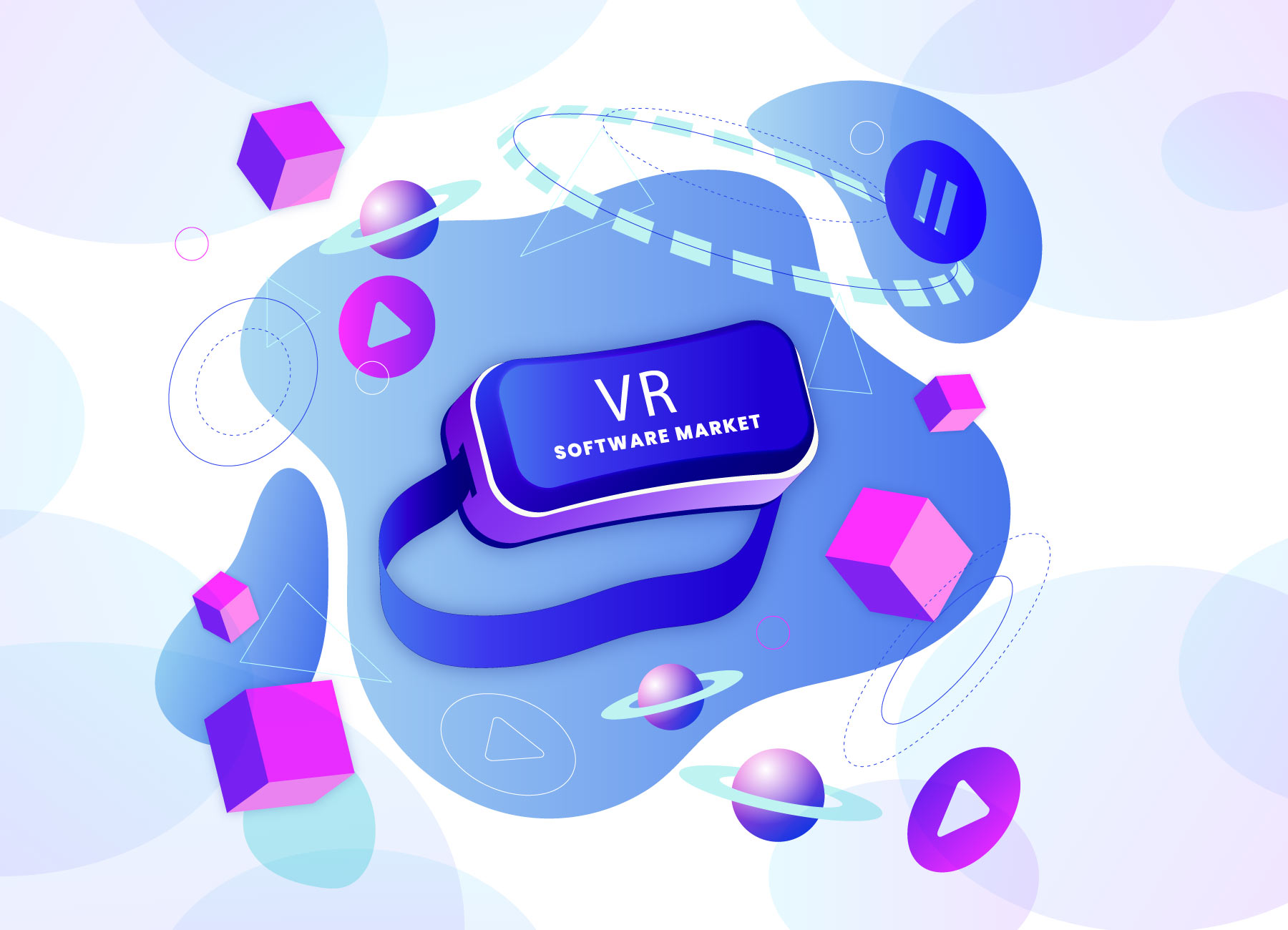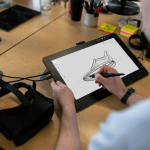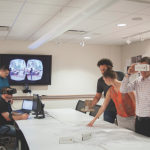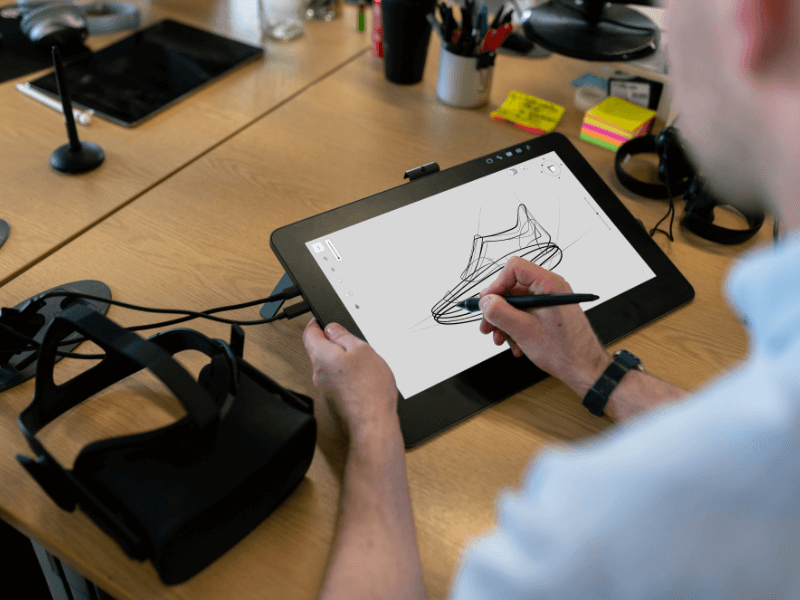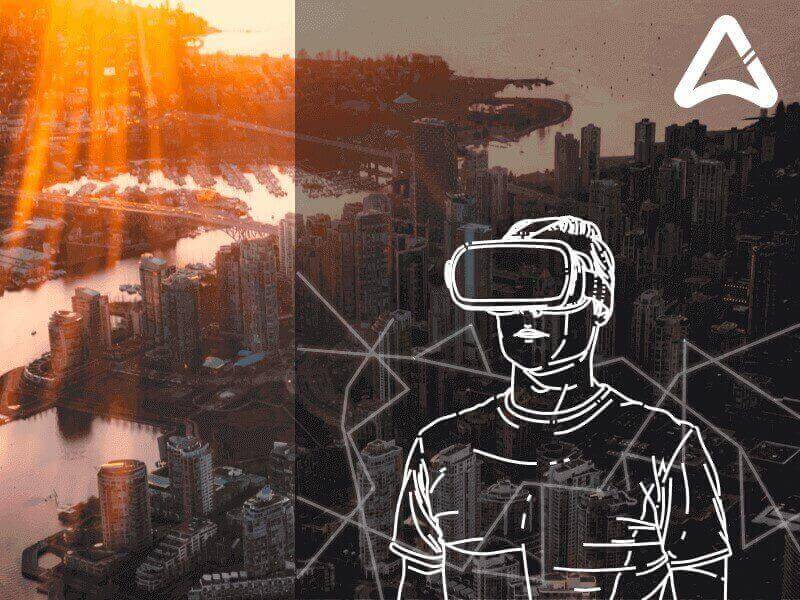The global virtual reality market valued approx 10.32 billion in the year 2019. This value is expected to grow at a compound annual growth rate of 21.6% from 2020 to 2027. Rapid smartphone adoption has led to the introduction of VR technology in commercial applications.
For example, in 2017, the British Museum introduced a VR experience. It provides users an unparalleled interactive virtual digital experience using a smartphone device or computer and a headset.
What is Virtual reality?
Virtual reality (VR) is a computer interface developed by VR developers. It provides users with an interactive 3-dimensional visual experience. It uses high-performance PCs and sensory equipment such as gloves and headsets to create a simulated environment.
Virtual reality technology has been used for training, education, and the gaming and entertainment sector. Examples, instructions to surgeons, airline pilots, or scientists better understand complex topics.
VR reduces investment & enriches several industries in the provision of extreme training situations. Majorly used for training and testing purposes in healthcare, machine operations, and the corporate sector.
Major industries using virtual reality-
VR can change the way we interact, buy, display, learn, and even do business. This market is still in its evolution with techniques speeding up the pace. Various enterprises are finding new ways of benefiting the profit of VR in industries.
Healthcare Sector-
Virtual aspects of human anatomy and realistic virtual environments enable healthcare professionals to give insight. This is beneficial both for skilled staff and for students who undertake new, high-risk practices.
Retail Sector-
Virtual reality technology offers different levels of convenience to consumers, with a try on clothing at home and decorate a room. It is a highly appropriate and configurable tool in a variety of solutions.
Movies and Entertainment-
VR brings a new storytelling technique, blurs the limit between the story and the audience, making him a central component of the film. Cinematic VR, based on 360-degree videos filmed with a professional device, has even appeared. There are games developed by game developers incorporated with great VR experiences & visuals.
Marketing & Advertising-
Today’s marketers are in continuous search for better manners to draw the attention of customers. People get bored with typical media attention. VR experience provides a unique way for people to interact with the brand, sure to be remembered.
Architecture & Realty-
Architects and engineers also benefit from having VR implemented in their work. With virtual reality, visualizing the construction plan, checking if any errors occur, and getting feedback with colleagues is much smoother.
Education–
Individuals in different professions use VR simulators to improve their abilities. Virtual Reality helps specially for those who are working in dangerous or hazardous situations. VR adds even higher value, which makes them innovative and engaging.
Impact of Virtual Reality software-
A new level of setting prototypes-
The advent of VR products developed can be designed, analyzed & can also be revised many times. It helps in quickly trace and deal with design issues faster, avoiding post-production difficulties.
Reduce travel business meetings-
Technology that brings down the gap in communication and transportation will revolutionize business. Virtual reality will decrease the gap & help to conduct virtual meetings worldwide.
E-commerce advertising move to a new side-
E-commerce has some untapped regions which companies need to identify to take maximum advantage of them. It should achieve using VR, as it provides a new experience for consumers to buy on e-commerce platforms.
Provide competitive advantages to business-
Businesses can build a virtual store efficiently. While this technology may speed up marketing speed, the store can arrange in complete secrecy. This helps the companies stay ahead of the competition.
VR will enhance the training process-
Expecting, professional business trainers will use VR extensively in the coming decade. Trainers will conduct live sessions & seminars, making the usual training more interactive.
Offering virtual tools-
VR will be beneficial for engineers, architects, or planning professionals, as it will enable them to visualize the frameworks. It would save a lot of time and energy.
Virtual Reality software and economic growth-
Over the past few years, the VR development growth rate has gained widespread rise. Recent technical advancements have uncovered new industries in this sector. Several players are competing in this market, aiming to steer it into acceptance by the mainstream.
The global market for virtual reality is witnessing an increase in competitiveness among the firms. The industry is made up of several large companies, including Apple, Facebook, HTC, Samsung, Sony, and Lenovo.
Some big companies dominate the industry as per market share. However, many companies are expanding involvement by acquiring new contracts and hitting new markets.
Future expectations from VR market-
In the coming future, VR expects to become an important technology. By the end of this year, the VR growth rate in the market expected to cross $1 billion and become a staggering $150 billion market by the year 2020.
Nearly 80 percent of top tech firms have invested in VR, which will only continue to increase. The gaming industry has been the most popular domain that uses VR, but this industry alone is no longer limited to technology.
We’re going to see a considerable rise in VR use by other sectors like real estate, industry, marketing, etc.
How AppStudio helps?
AppStudio, leading mobile app developers, takes you from the initial phase of designing and development of top-notch virtual reality app development. Thanks to our expertise in custom VR app development, our iOS and Android app development team will help you make a significant impact.
